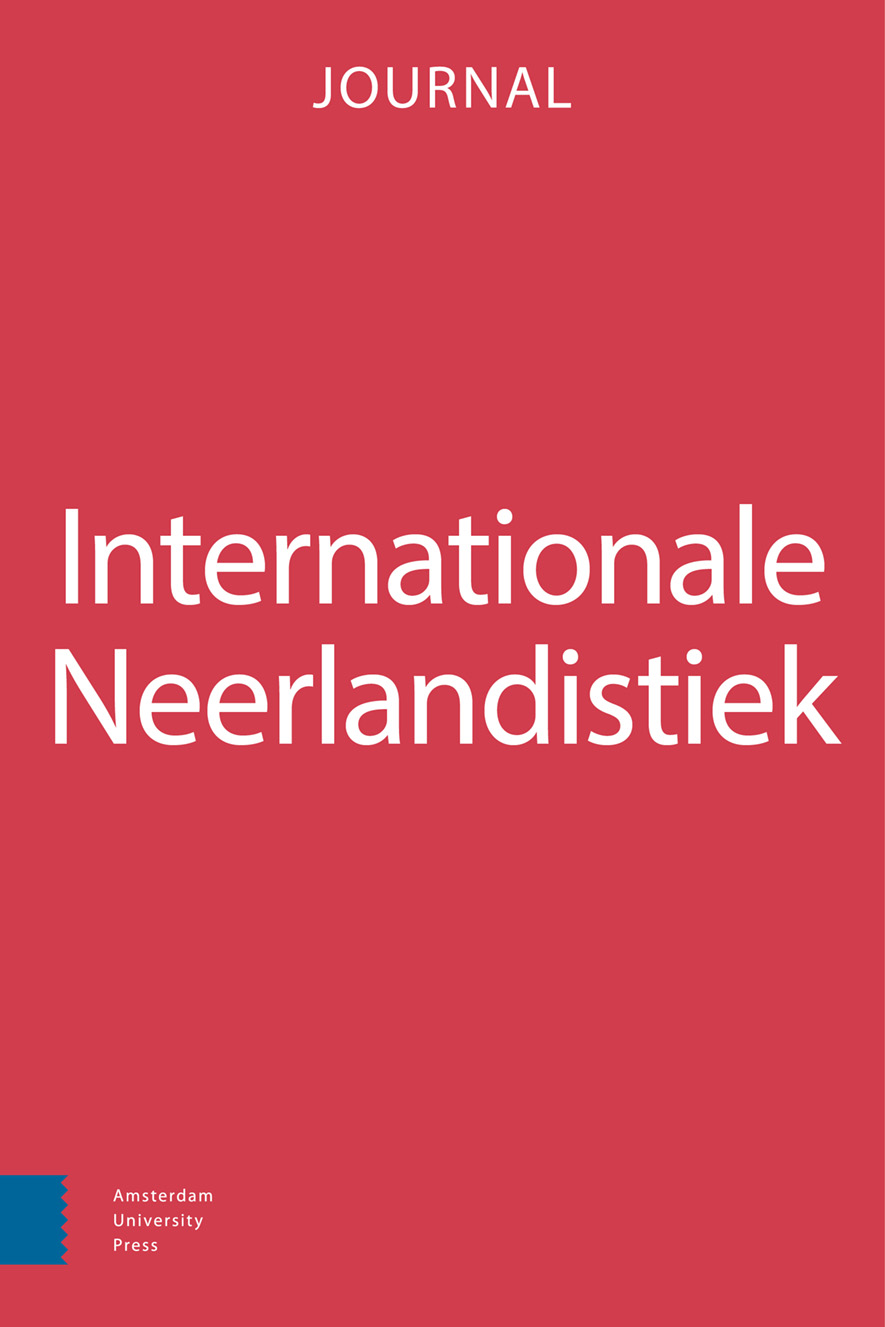-
oa Jojoën tussen u en je
Over de dynamiek van het gebruik van Nederlandse aanspreekvormen in het radioprogramma Casa Luna
- Amsterdam University Press
- Source: Internationale Neerlandistiek, Volume 54, Issue 2, Jun 2016, p. 117 - 136
Abstract
Balancing between formal and familiar: about the dynamics of address pronouns in the radio show Casa Luna
This article concerns forms of address in Dutch and more specifically switching between formal and informal address forms in dialogue. As a mechanism for establishing politeness between conversation participants, the use of address forms is constantly subject to negotiation and renegotiation, not unlike the mixing of address forms in the medieval and early modern period. Sometimes switches between address forms can be the result of confusion, e.g. because of cultural differences between speakers, but more often they are used strategically to effect style changes and thus express affect. Switches are also used in irony and banter, which can be seen as specific instances of such style changes. Data for the study are drawn from 45-minute radio interviews which are subjected to a qualitative analysis.


